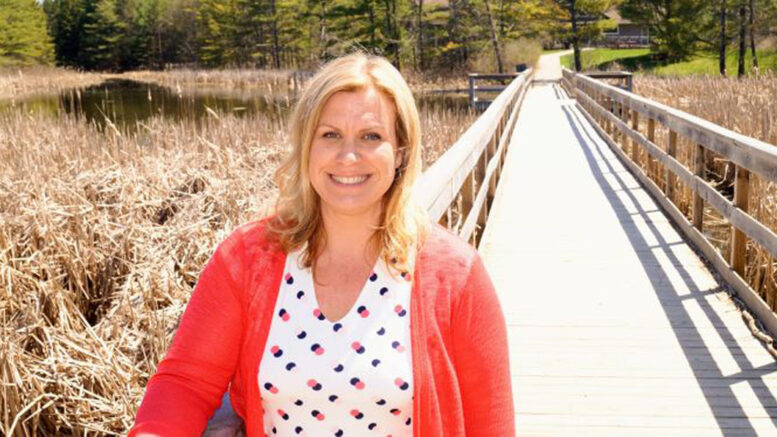Beaver Staff
Odessa farmer and psychotherapist Deborah Vanberkel’s work in developing the Farmer Wellness Program (FWP) has earned the Brigid Rivoire Award for Champions of Agricultural Mental Health.
The annual award recognizes a specific initiative that makes outstanding contributions in raising awareness, addressing stigma and supporting mental health for farmers in their local community.
Modelled after the PEI Farmer Assistance Program, the FWP is designed to provide tailored counselling, education and mental health services for the farming community in Ontario.
Vanberkel started counselling farmers when she realized there were simply no services for them in Ontario. A dairy farmer herself, she quickly discovered firsthand the need for services geared towards those in the industry.
While she was beginning to plan on moving from public to private practice, an issue around mental health was raised at the local milk committee meeting.
A farmer from Western Ontario had called seeking support, because they were thinking of ending their lives. No one knew what to do or where to direct them for help. That very night Vanberkel started making calls.
“I found out that there were no services, no resources that were tailored to the farming community at all,” said Vanberkel in a release. “It is very disheartening that they aren’t able to have a resource like everyone else is. And by everyone else I just mean that when I was working in the public sector, I was part of a lot of programs that started from the ground up in addictions and mental health and homelessness. There was always that research done on the different types of populations there and they created programs that were targeted for those populations. And unfortunately, in terms of farming and mental health, there wasn’t anything. It was at that point that I decided my private practice would be tailored for farmers.”
Soon after, Vanberkel and several members of her local federation began working on the FWP. The entire goal of FWP is to make it easier for farmers to access treatment, and does so by operating under its three core tenants.
First, the provision of services is accessible and flexible. It provides immediate access (no wait list, is available evenings and weekends), in multiple modalities (in-person, telephone, or video chat) in the farmer’s preferred location (in office, at home, other).
Secondly, the service provider is personally familiar with the unique stressors of the industry. The service provider is able to make the client feel at ease as they have an inherent understanding of the industry.
Thirdly, the farmer can access four counselling at no cost to them. The sessions are paid for by their local federation of agriculture. The whole program is completely anonymous and the farmer only needs to contact the service provider. Administration of the program is handled separately from the client.
These core tenants remove many of the barriers farmers face when seeking help. By having someone available who understands the farming lifestyle, Vanberkel has found that farmers are more willing to engage with the services.
While all user information of the program is confidential, data shows that farmers who have accessed the initial four sessions are continuing to see the counsellor afterwards, realizing the value in getting professional help.
Vanberkel says she feels that through her work and others in the field, farmers are beginning to become more comfortable with talking about mental health issues. And she believes that is half the battle.
“The more we talk about it, the more we normalize it. When we normalize it, people stop being scared to talk about it,” she said. “My goal when I first started this is for people to talk about their mental health like they talk about the weather.”
She says be starting the conversation it can be a big step in the right direction.
“I just want farmers to be able to say to each other ‘You know what, this week sucked,’ or ‘I’m struggling, everything is always breaking and all I can do is react to stuff’. A lot of the times they talk about these things but don’t realize it. Helping them make that connection is my goal. I want people to understand that it’s okay to not be okay, to recognize when they’re not okay and understand that feeling out of control (like with the weather) does not mean they’re failing. The Farmer Wellness Program is mental health designed for agriculture,” she added.
The Brigid Rivoire Award comes with a $2,000 donation to a mental health organization of Vanberkel’s choice as well as an invitation to attend the Canadian Federation of Agriculture’s Annual General Meeting.

